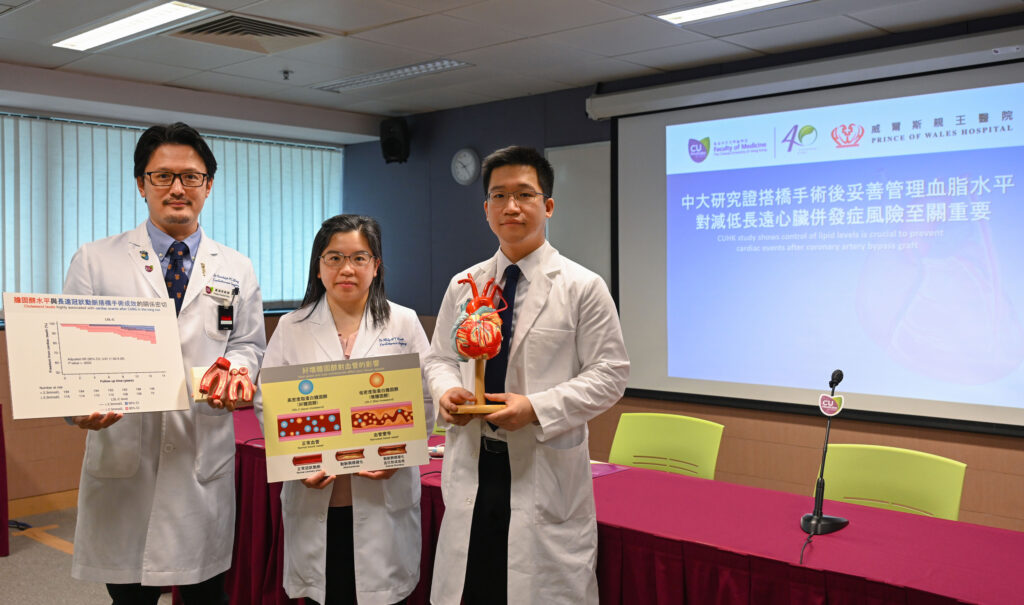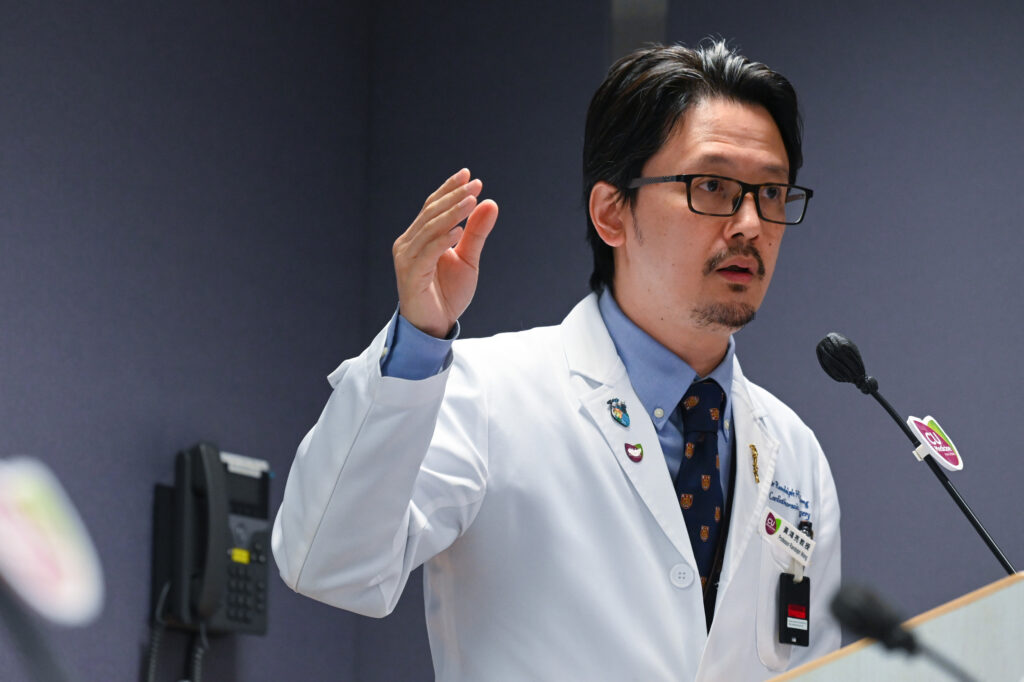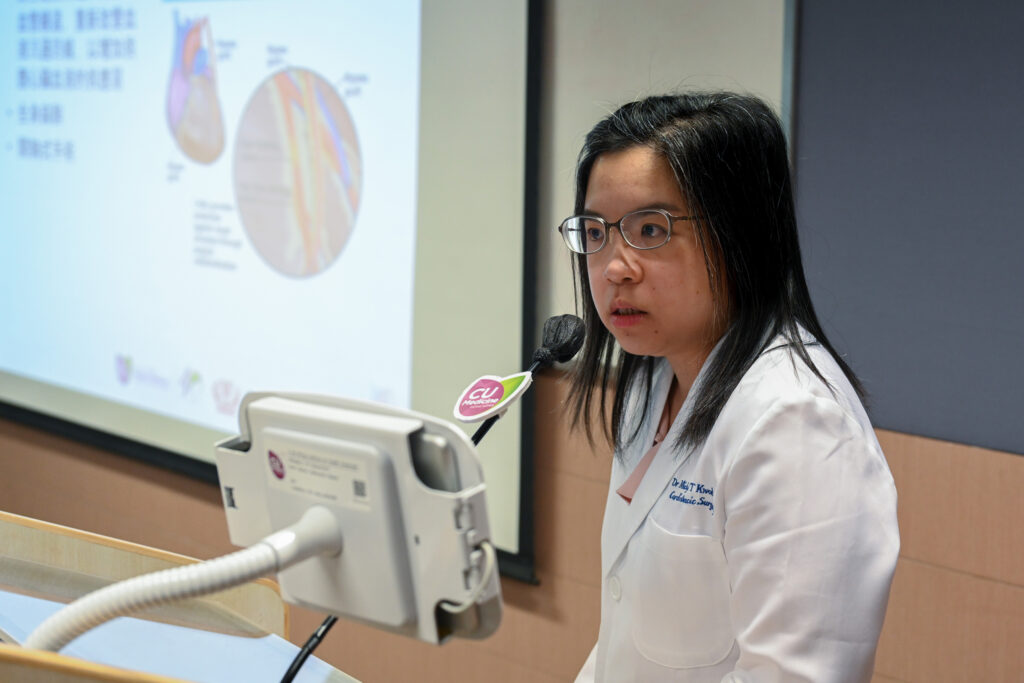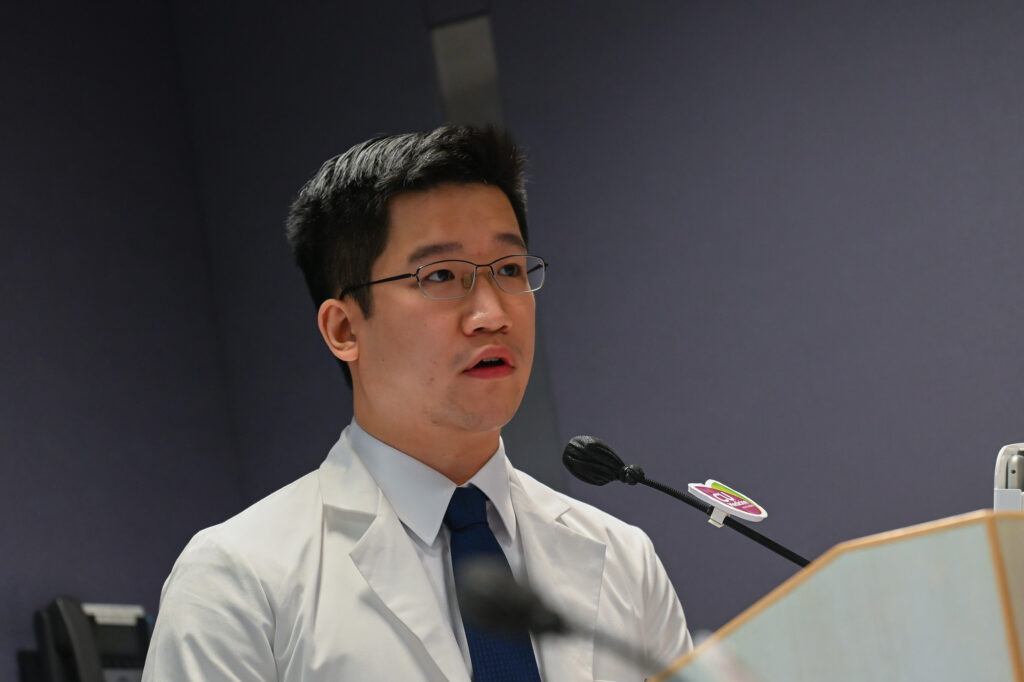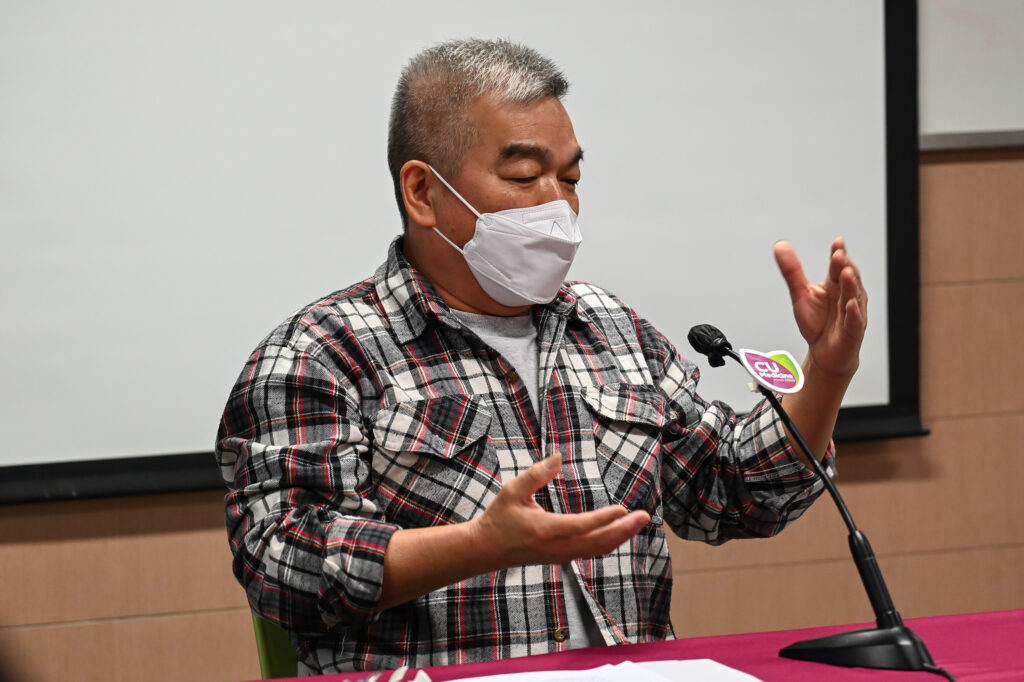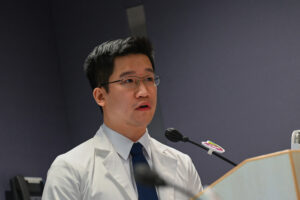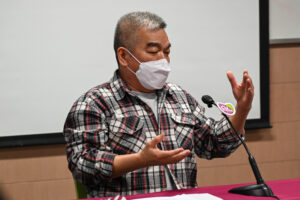CUHK
News Centre
CUHK study shows control of lipid levels is crucial to prevent cardiac events after coronary artery bypass graft
Patients who have undergone coronary artery bypass graft (CABG) surgery remain at high cardiovascular risk and it is important for them to maintain good lipid control. However, there is an evidence gap in the literature regarding how stringent cholesterol levels should be after the surgery.
The Cardiothoracic Surgery team from The Chinese University of Hong Kong (CUHK)’s Faculty of Medicine (CU Medicine) and the Prince of Wales Hospital (PWH) conducted a study with a median follow-up duration of 12.5 years to investigate the influence of cholesterol levels on long-term survival and cardiac events after CABG surgery. Results showed exposure to elevated low-density lipoprotein cholesterol (LDL-C) and non high-density lipoprotein cholesterol (non-HDL-C) independently predicts long-term cardiac death after surgical coronary revascularisation. The optimal LDL-C and non-HDL-C levels are below 2.3mmol/l and 3.2 mmol/l respectively. The findings have been published in the medical journal JTCVS Open.
First long-term follow up on CABG patients’ cholesterol levels in Hong Kong
CABG is a surgical procedure used to treat coronary heart disease, diverting blood around narrowed or clogged parts of major arteries to improve blood flow and oxygen supply to the heart. Persistent lipid abnormalities are associated with cardiac death after CABG surgery. Statins are often prescribed to patients after CABG surgery to delay progression of atherosclerosis in native coronaries and saphenous vein grafts, thereby reducing ischemic events. Statin therapy intensity, however, differs in accordance with different international guidelines on cholesterol level control.
Lipid are fats in the blood which include cholesterol and triglycerides. There are two main types of cholesterol: high-density lipoprotein cholesterol (HDL-C), or “good” cholesterol and low-density lipoprotein cholesterol (LDL-C), or “bad” cholesterol. Non-high-density lipoprotein cholesterol (non-HDL-C) is the combined amount of cholesterol in the blood other than HDL-C.
Professor Randolph Wong Hung-leung, Professor and Chief in the Division of Cardiothoracic Surgery of the Department of Surgery at CU Medicine, said, “Patients in Hong Kong are currently following a more stringent set of cholesterol targets adopted from the European Society of Cardiology (below 1.8mmol/l) but the proportion of patients who can attain this target is low. We believed it was essential to conduct a long-term study looking into the condition of our local patients, so as to evaluate the optimal level of control in lipid targets and ascertain which lipid component correlates best with long-term outcomes. It is Hong Kong’s first long-term follow-up study on cholesterol levels of patients after CABG surgery.”
Bad cholesterol and triglycerides independently associated with cardiac death or events after CABG
The CU Medicine and PWH research team identified and analysed 309 patients who underwent CABG at the Prince of Wales Hospital in 2007 and 2008, evaluating their condition with a median follow-up duration of 12.5 years. The key discoveries were:
- “Bad” cholesterol types LDL-C and non-HDL-C are independently associated with cardiac death after CABG:
– Every mmol/l increment in LDL-C leads to 2.3% increased risk of cardiac death per annum.
– Among patients with an average non-HDL-C below 3.2mmol/l, 97% had not suffered cardiac death after 10 years, compared to 87% of those above the threshold. - Optimal LDL-C and non-HDL-C levels after CABG are below 2.3mmol/l and 3.2mmol/l respectively.
- Triglycerides are the only lipid subcomponent independently associated with cardiac events.
Dr Kevin Lim, Resident from the Division of Cardiothoracic Surgery at PWH, remarked, “Our study proved that lipid targets do matter in predicting cardiac death or events after CABG. Given that the optimal LDL-C level is below 2.3mmol/l, the use of high-intensity statins therapy is recommended for secondary prevention after surgical revascularisation. We also observed there was a significant gap between guidelines and clinical practice. 37.2% of patients failed to attain the optimal level of LDL-C. We hope our findings can raise patients’ awareness of the importance of consistent lipid target control.”
Dr Micky Kwok, Consultant from the Division of Cardiothoracic Surgery at PWH, added, “The Prince of Wales Hospital handles an average of 150 CABG surgeries per year, or 42% of all cases in the public healthcare system. Hong Kong’s crude CABG mortality rate is among the lowest in the world at 1-2%. With the collective efforts of the cardiothoracic teams from PWH and CU Medicine, we managed to achieve zero mortality in 2007 and 2008. Though CABG is a major, complex operation, evidence showed almost all patients can avoid cardiac death after 10 years, as long as their cholesterol level is well controlled.”
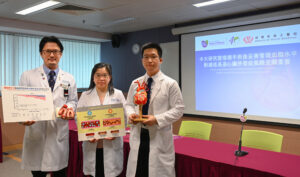
Research team from CU Medicine and the Prince of Wales Hospital (PWH) conducted a 12-year study on patients who have undergone coronary artery bypass graft (CABG) surgery. Findings showed lipid level has a strong influence on the long-term survival and cardiac events after CABG surgery.
(From left) Professor Randolph Wong Hung-leung, Professor and Chief in the Division of Cardiothoracic Surgery of the Department of Surgery at CU Medicine; Consultant Dr Micky Kwok and Resident Dr Kevin Lim from the Division of Cardiothoracic Surgery at PWH.
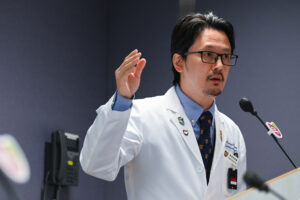
Professor Randolph Wong points out that patients in Hong Kong are currently following a more stringent set of cholesterol targets adopted from the European Society of Cardiology but the proportion of patients who can attain this target is low.
He therefore led his team to conduct the Hong Kong’s first long-term follow-up study on cholesterol levels of patients after CABG surgery to look into the condition of the local patients. The objective is to evaluate the optimal level of control in lipid targets.
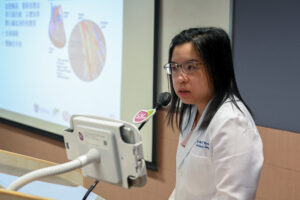
Dr Micky Kwok remarks that although CABG is a major, complex operation, evidence showed almost all patients can avoid cardiac death after 10 years, as long as their cholesterol level is well controlled.


